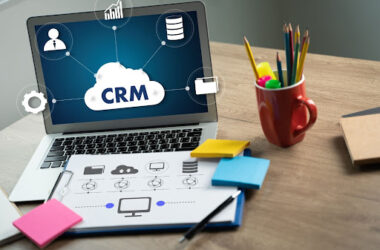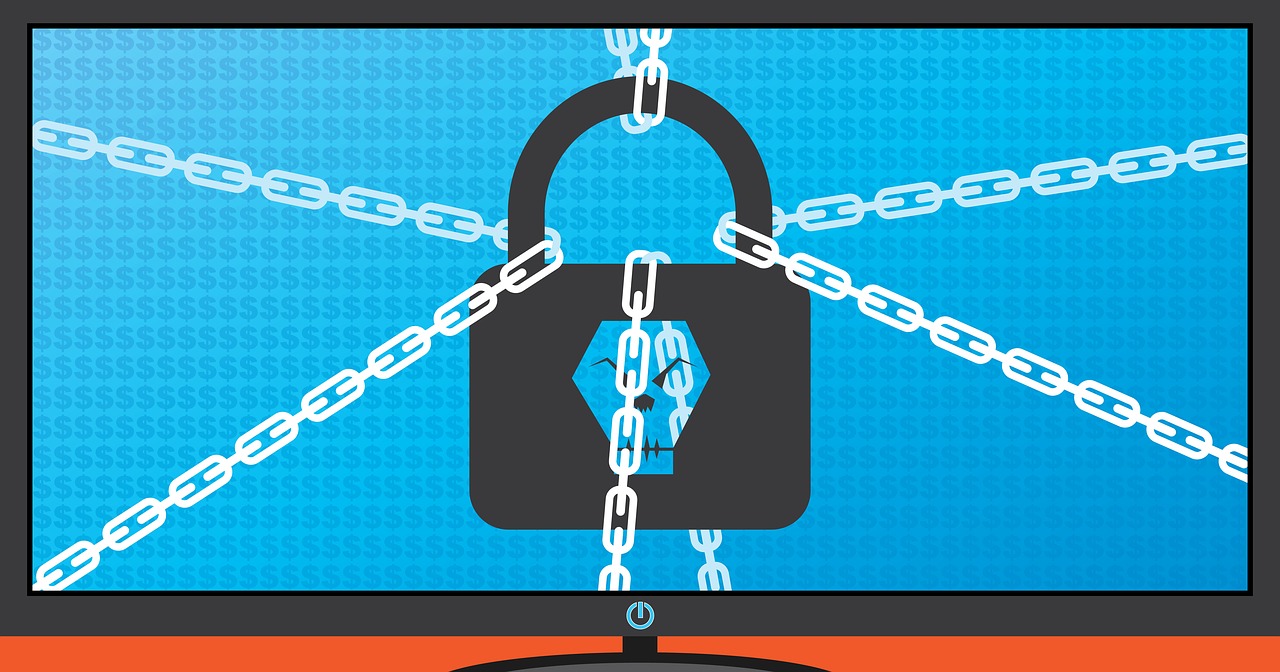To operate a retail business, a range of management, administrative and marketing skills is necessary. An advanced point of sale (POS) system ensures all operations take place in unison.
As of 2017, the global POS software market accounted for USD 12.9 billion. The number is expected to reach USD 30.9 billion between 2018 and 2024, at a CAGR of 13.3%.
It combines specific hardware and software components to integrate a business solution for inventory management, handling transactions and customer loyalty programs. Retailers implementing such a system before its requirement reaps most of its benefits.
Whogohost offers affordable hosting options for retail businesses. This article covers the significance of a POS system for any retail business.
Overview of a POS system
According to Julia Morton, Senior Advisor at Software Advice,
“Finding the right POS system for your business can eliminate a lot of manual entry and reporting errors down the road. Many of these systems are similar, but there are key features that stand out in different systems that can make all the difference. For example, finding a system geared to help apparel stores with heavy inventory needs, grocery stores that need scale integration, or service-oriented restaurants or cafés that need menu optimization.’’
In a POS system, a combination of tools different retail management functions like payment processing. It serves as the central component for operating businesses.
The POS system can be integrated with other systems like warehouse systems, e-commerce platforms and accounting apps. A full-featured POS system can monitor, analyze and report sales, track inventory, manage employee and customer data and offer robust integrations.
Classification of POS system
Primarily, two major types of POS systems are available.
● Cloud-based POS system
This installation can be done remotely by connecting it to a good internet connection. All the business data saved remotely can be accessible anywhere, any time.
It can be updated automatically, saving manual updates. All technical assist costs, software licensing fees and training costs can be avoided.
● On-premise POS system
After the software installation, it is held on a server in the retailer’s facility. The on-premise POS system may resemble a desktop computer or a touchscreen monitor. Upon its installation, all the in-house data gets saved without any ongoing data hosting fees.
To maintain and upgrade the system, retailers may have to pay additionally for the software licenses, technical support, and training. This system requires a physical space for storing elements like databases and architecture.
In addition, certain common POS system subcategories include:
● Retail POS system
It is designed for retail businesses whether in traditional stores or remote business setups. It is ideal for tracking customer profiles, providing discounts, gift cards and purchase orders.
● Mobile POS system
It offers flexible payment acceptance options from any mobile device. This is a suitable system for businesses on the go like food trucks and home repair services.
● Multichannel POS system
It helps to integrate third-party marketplaces, social media platforms and other channels with the retailer’s website.
Key components of a POS system
● POS software
Any POS software has a user interface for performing necessary transactions. The backend is essential to track and manage business operations and analytics, accessible through a web browser or mobile app.
Whatever the type may be, any POS software hosting can take place on-site or on the cloud. The on-site POS system stores relevant data on the server. Likewise, any data on the cloud-based system gets stored on the cloud. This allows any user to extract data immediately from anywhere around the world.
Some of the common functions of a good POS software are:
➔ Adding overall sales
➔ Displaying sales tax
➔ Offering inventory management.
● POS hardware
➔ Monitor: Allows merchants to view all the transaction details. Usually, the POS systems have LCD monitors. It serves as a register screen as well.
➔ Barcode scanner: Automates the checkout process at any retail store. It allows the customers to check the product price and relevant checkout details. The scanner is connected to the inventory to avoid any error in updating the product count.
➔ Cash register: It is necessary for storing a substantial amount of cash in place for running in-store business thoroughly. No added credit card fee is associated with it.
➔ Credit card machine: Today, flexible payment options like credit card payments are higher in demand. Having a safe and EMV safe credit card machine is a must for reading credit card transactions.
➔ Receipt printer: Helps to generate receipts for purchases made by the customers in real-time. In retail stores, this snapshot of purchase is a relevant option for customers to date.
Salient features of a POS system
A retail pos system encompasses the following features.
● Billing and processing orders
The basic function of any POS system is billing orders by scanning the items and securing different payment modes. It helps to generate order invoices, reprint and email receipts.
Alongside, additional details like relevant discounts, customer details, added remarks and the salesman’s name can be put in any order.
● Monitoring and reporting sales
It helps in generating a vast range of sales reports. This helps the merchants to understand the weekly, monthly and yearly outgoings and takings to estimate the overall success of their businesses.
● Managing stocks and inventory
POS systems offer better visibility of the store stocks, their inbound and outbound inventory, offer transaction history and make necessary stock adjustments.
● Managing cross-channel returns
The system accepts cross-channel returns, enables replacements and refunds, generates multiple sales from a single order while understanding the reason behind the returns.
● Customer relationship
The stored customer data like purchase history helps the merchants to target a category of customers. It helps to gain insights about customers who could be interested in forthcoming launches and sales.
● Employee management
It stores all the employee data necessary for managing staff levels, their sales performance, working hours of employees and track their work performance and productivity.
● Loyalty programs
The system helps to track a customer’s loyalty incentives. Alongside, gift cards are becoming increasingly popular. Hence, the system must be able to manage those as well for ultimate customer satisfaction.
Reasons to host a POS system
An all-in-one POS system can produce long-term benefits for any retail business. It not only offers a lasting positive impression of your brand or store but efficiently leaves most employees with a happy experience.
Listed below are 7 reasons why a retail business must host an advanced POS system for reaping the most benefits.
1. Incorporates the latest advanced technology.
Most promising brands have been incorporating technology into their business. The small businesses however need further reasonings to realize the importance of incorporating cutting-edge technology into their brands or stores.
The technological advancements are meant to upgrade the business mechanism, accomplishing everyday tasks and checking out customers at stores with no exception. The target customers may be acquainted with the high-tech technology available at the larger business.
Likewise, they may keep similar expectations from small and growing businesses. Today, most of the population globally is indulged in technologically smart devices. Any outdated system may seem unmanageable by the employees in the technological era.
The absolute combination of integrated hardware and software systems seamlessly works together to provide a thorough solution for the POS process. It may seem similar to the traditional manual system, but some of its features make the distinctive mark.
● Sophisticated software system.
The advanced software integrated into the advanced POS system manages the retail store through its data analytics and tools. The automatic updates help to smoothly run any business, leaving users with new and improved features.
● Equivalent payment modes.
Other than tracking cash payments, a good POS system allows users to accept alternative payment options. The credit card processor accepts credit and debit cards, EBT and contactless payment options like Google Pay and Apple Pay.
The latter option is becoming increasingly popular due to mobile proximity payments. According to Statista, contactless technology will be accessible by at least 64.9 million users between 2018 and 2023.
● Customer-centered display.
At checkout, keep the customers engaged with the advanced customer-facing screen. It may feature advertisements of upcoming events, sales and launches to keep the customers engaged throughout the checkout process.
● Mobile apps.
A major benefit of mobile POS applications is that it allows users to access relevant information without being physically present in the retail store. It offers viewing options with additional features to manage things from distance using the app.
2. User-friendly.
Any high-tech system may seem confusing or overcomplicated to put to use. A good POS system ensures retail owners, employees and customers can use the system with ease. Stated below are how in which it may come across as user-friendly.
● For owners or managers.
The advanced POS system allows managers to manage the business effectively without much hassle. It has become a convenient option for users who are not able to be on-site to work on the system.
● For employees.
The built-in features of the all-in-one POS system smoothly carry out any customer checkout process. Here, the touch-screen monitor of the system automatically stands out as user-friendly.
A large, high-resolution monitor with an easy-to-understand interface makes the cut. The adjustable system allows employees to angle the system, offering a comfortable working experience in-store.
● For customers
Just like the employees, customers receive equivalent benefits from the high-definition display facing them. It is a crucial feature for any retail store to have.
This allows the customers to engage in the advertisements, view the price ring-ups with each scanned product and discounts applied if any. In addition, the total amount payable is listed on the screen which makes it easier for the customers to make the payment.
3. Beats all guesswork.
A lot of time and effort goes to smoothly run any business. The managers have to routinely restock shelves whilst offering customer assistance. Alongside, they have to keep an eye on the ongoing business trends in the retail industry. They are responsible for knowing the overall sales and how each of the products in different categories on display is doing.
To check the business trajectory or its health, the owners may shift towards the sales data. An advanced POS system allows the users to access and log into the ongoing data in real-time. Replace unreliable sales tracking methods with a POS system to receive accurate business insight at all times.
The built-in integrations allow users to carry out inventory management besides tracking sales metrics data. Users may benefit from its accuracy and precision in managing inventories. With an upgraded POS system, users can use the software to input and group different items while keeping track of the inventory stock.
The sales metrics data keeps track of the products in demand as well as the products that would require further restocking. It keeps a note of the bestselling products and the products that may have to be discontinued. Manage all the stock and keep the inventory updated without any added guesswork.
4. Economical.
A business owner has to make several decisions before coming down to certain financial implications. The aim of hosting a retail business is to maximize sales while minimizing the costs as much as possible. The financial burden may be one of the prime reasons why most business owners skip installing a POS system.
Adopting a new technology comes with an initial price, that can be expensive. Most business owners do not understand its potential for long-term savings. The support of an advanced POS system may be cost-effective.
For new operations, opting for a POS system is a better option than buying its counterparts. Employees can save time by transferring data manually. This in turn may reduce potential inaccuracies and chances of financial losses.
5. Dynamic growth with the retail business.
An owner may run a small business that is brand new or a large business with a solid foundation and history. Whatever the case may be, every retail business must keep in mind the scalability of every purchase made and decisions taken by the owners.
Choosing the right POS system is a must. It should be able to accommodate the growth of any business rather than causing additional problems if the business expands in the long run. The advanced POS system must be able to work in any scenario whether that involves adding more locations, shifting to different areas or encompassing new and upgraded products.
If the components of the systems are brought separately from different providers, its integration may seem complicated and turn out to be an expensive investment. Instead, opt for a single POS system that centrally manages the business and its customers side by side. Its simplicity and precision make it a perfect choice for employees to avoid most of the errors when operating the process.
6. Customer relationship management (CRM)
To build good brand loyalty towards retail businesses, the owners must take into account their relationship with potential and existing customers. They may do so through customer management and tracking relevant customer data.
The POS systems record necessary customer information that fosters better relationships with customers. To begin with, the retail business can reward repetitive customers with customer loyalty programs and discounts. This creates an attractive chance for those customers to engage further into a particular brand for further personalized chances.
After transactions, a POS system can be used to connect with potential customers. If a business has been incorporating email marketing, they may try sending promotional emails to further engage potential customers. Some of the systems also allow connecting with the pre-existing CRM system.
7. Manage employees.
Track and manage business relationships with the employees. A good POS system allows the owner to track their working hours, their sales and work performance.
The system allows employees to clock in and out on their own for every shift. Besides, the owner may also set different clocking-in and clocking-out schedules using the software without being physically present in the retail store.
The retail business owner can track employee commissions for the sales completed and employee tip distribution that took place with it. The commissions and tips are distributed evenly amongst the employees based on their unique identifiers available in the system.
To conclude
A reliable POS system for hosting is a critical component for any retail business. For generating a profitable business in the long term, installing an advanced POS system is crucial.
Not only can the user carry out payment processing, but they may also manage inventory and stocks, track sales and employee logistics while building customer brand loyalty. This fast, economical and user-friendly system surely makes a difference in any retail business. It is, therefore, worth investing in an advanced POS system.









